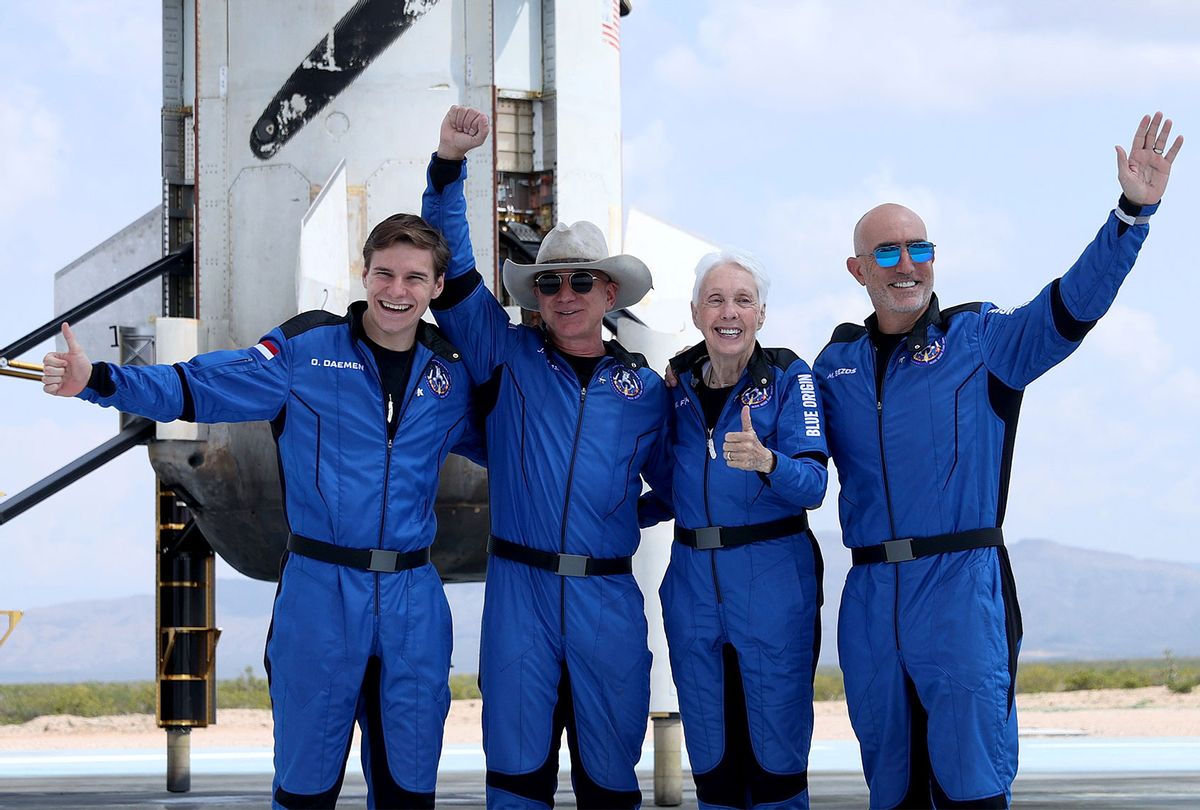Not long after the July 20, 1969, Moon landing, Gil Scott-Heron – a poet hailed as the "Godfather of Rap" – released a scathingly critical song called "Whitey on the Moon."
While others lauded the lunar landing as a "giant leap for mankind," Scott-Heron lamented the Moon trip in his lyrical litany. He felt the trip consumed resources that could have been better put to use helping people confront the everyday costs of living on Earth.
I don't recall precisely when I first heard "Whitey on the Moon." But I distinctly remember the cadence and flow sounding so much like the kinds of rap I appreciate today as a hip-hop scholar and lyricist. I was especially enamored with the refrain of "whitey's on the moon" and how the song was bookended by the immediate issue at home: "a rat done bit my sister, Nell."
"I can't pay no doctor bills, but whitey's on the moon," Scott-Heron says. "Ten years from now I'll be paying still, while whitey's on the moon."
Gil Scott-Heron's 'Whitey on the Moon.
The year 2021 is shaping up to be an interesting year to revisit Scott-Heron's "Whitey on the Moon."
For one, in May 2021, the late Scott-Heron was inducted into the Rock and Roll Hall of Fame. A hall of fame web page recognized him as a "teller of uncomfortable truths."
Perhaps more interestingly, people are discovering "Whitey on the Moon" anew and applying its prescient precepts to the 2021 space trips of billionaires Richard Branson and Jeff Bezos, and, perhaps eventually, Elon Musk.
Reverberations
In writing about the 2021 documentary of the "Summer of Soul" music festival of 1969, which coincided with the Moon landing, a film critic in July 2021 noted how Black sentiments about the seeming wastefulness of the Moon trip then represents an "extraordinarily topical sequence now, with billionaires funding rockets to fly into space, while memes fly around social media quoting Gil Scott-Heron's bitter song 'Whitey on the Moon.'"
Another writer – in discussing the Branson and Bezos space trips – described "Whitey on the Moon" as "a nod to the privileges enjoyed by non-Black people that allowed them to pursue their prideful pet projects that did not necessarily make the world a better place for most Americans."
I suspect these writers sense – as I do – that we are living in the same dystopian present. It is a time in which the "whitey" in Scott-Heron's poem could be any of the three billionaires who are the faces of the current space race, which is taking place in an era of profound inequity that helped them become billionaires in the first place.
There are tons of examples of earthly "Sister Nells" who have been and are currently being bitten by rats on Earth while rich white men are taking tourism to the heavenly skies.
I believe that people, more or less, feel that the song points out the kind of inequity that lies at the heart of the ability to amass exorbitant wealth that affords the likes of Branson, Bezos and Musk the privilege to be the first space tourists.
False choices
There's another reason the song feels prescient. Whereas Gil Scott-Heron spoke as if it's the taxes he's paying directly funding "whitey" on the Moon, currently the discussion surrounding Branson, Bezos and Musk is that they aren't being taxed enough. One report even found that the three billionaires are getting tax breaks meant for poor neighborhoods.
Yet as Professor of Physics and Astronomy Chanda Prescod-Weinstein has argued, space exploration and helping people on Earth need not be an either-or proposition.
"We can afford to do the caring work of sustaining people, including honoring everyone's right to know and love the night sky," she writes.
Such nuanced views are reflected in the increasingly sophisticated ways in which rappers deal with space travel.
For instance, in "Black Astronaut" – a 2021 Apple Music Exclusive – the rapper Saba continues the tradition of hip-hop artists who write about celestial matters as metaphors to describe limits placed on their earthly existence.
Black astronaut, forecast report / How they actually thought that you wouldn't find your way / That matters not, it's an act of God / Can I tag along, now that you're in outer space? / Now that you're in outer space…
The video for 'Black Astronaut' by Saba.
In the same way that space travel can be seen as an inevitability, society should also be trying to ask the kinds of questions that prompt reflections about who is represented and how.
Will Black creativity go to space before everyday Black folks – not just Black astronauts – are afforded the opportunity? I suppose that question has already been answered since the will.i.am song – "Reach for the Stars" – made it to space before he did.
A.D. Carson, Assistant Professor of Hip-Hop, University of Virginia
This article is republished from The Conversation under a Creative Commons license. Read the original article.



Shares